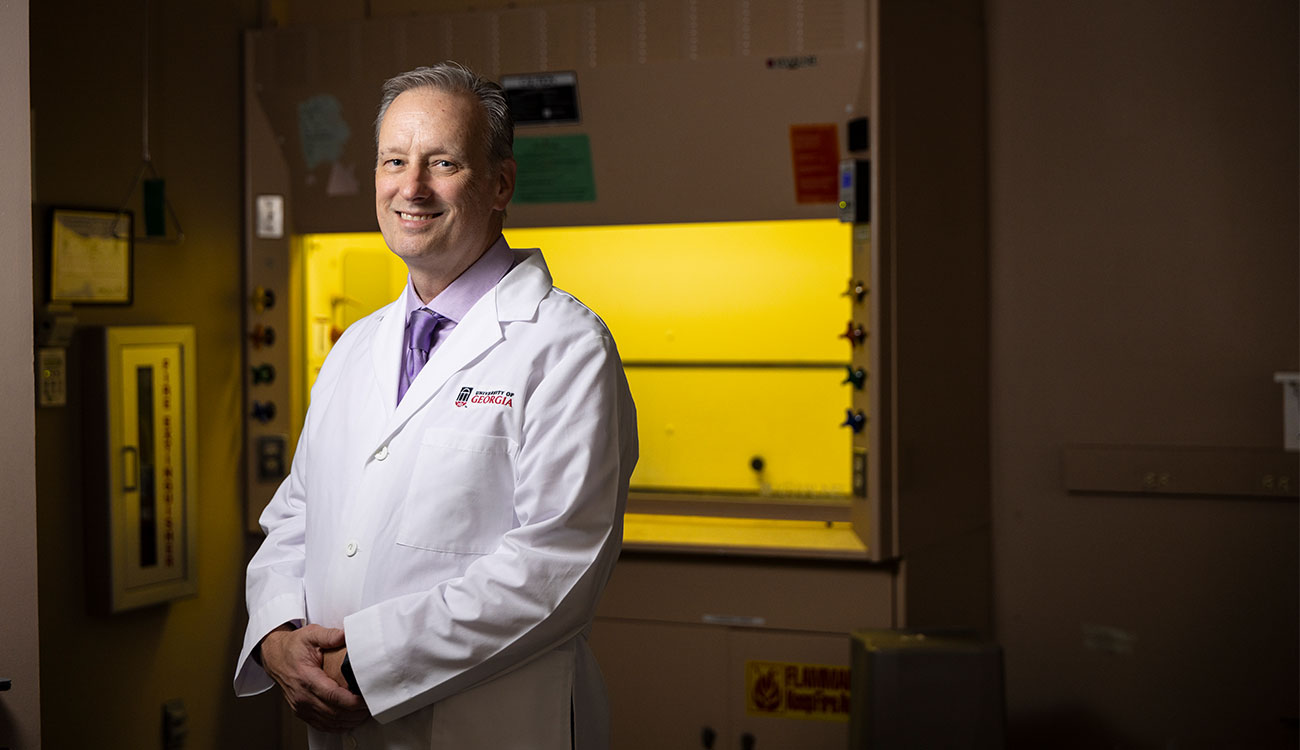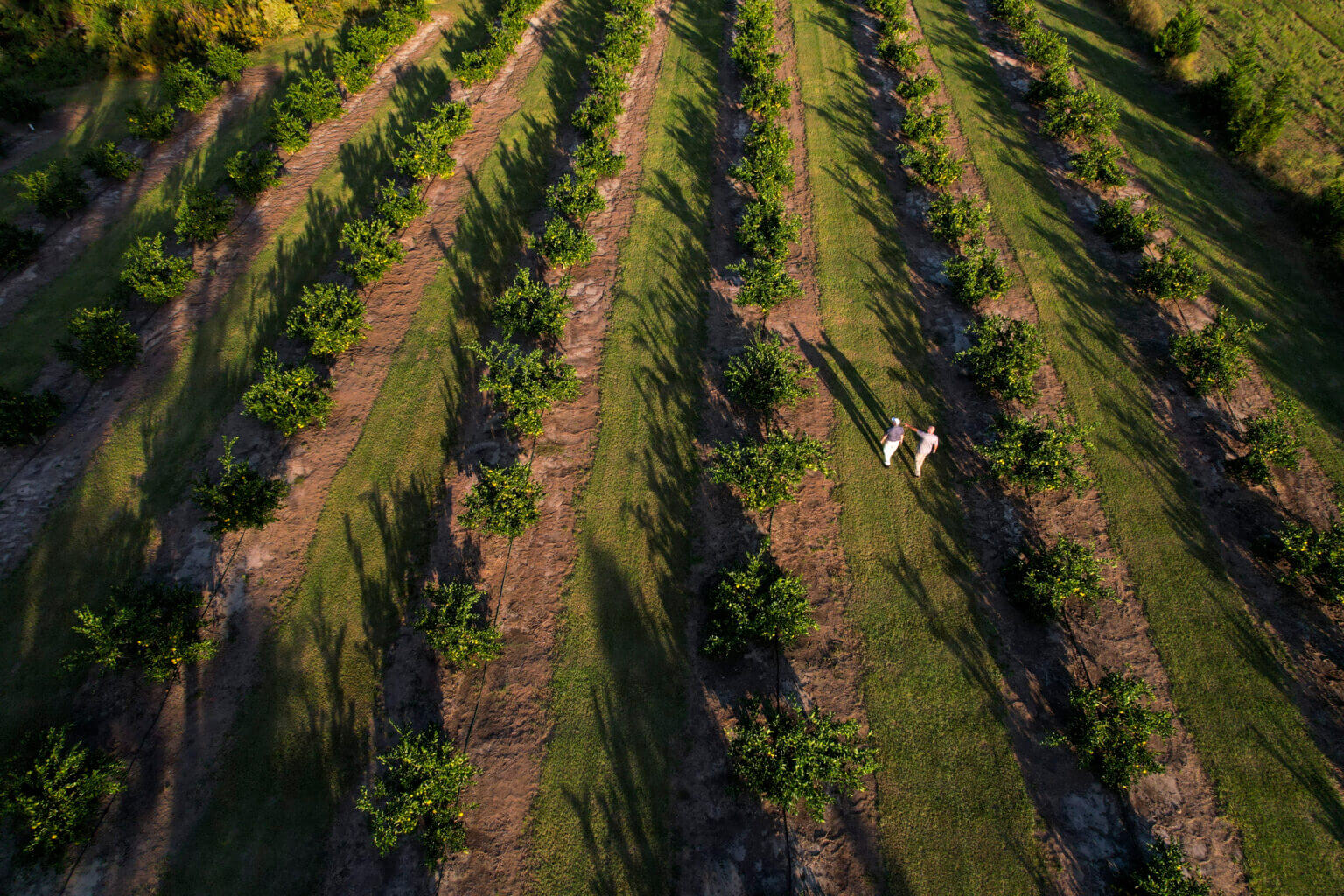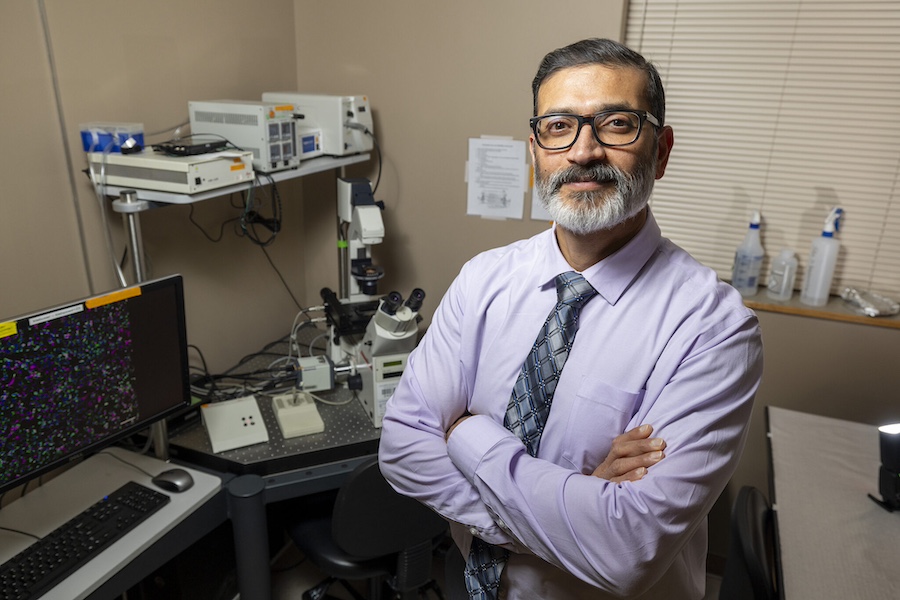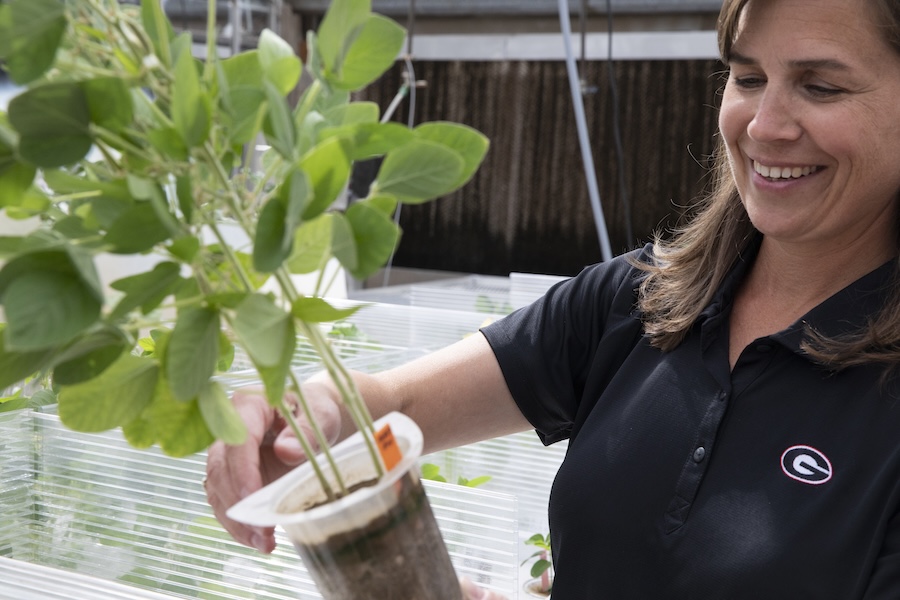Can't use it, can't lose it. That's the dilemma farmers have faced for years with canceled chemicals and empty pesticide containers.
But two programs run by the University of Georgia Extension Service and the Georgia Department of Agriculture (DOA) offer a legal, low-cost option that helps farmers protect the environment.
"The Pesticide Container Recycling and Georgia Clean Day programs help farmers who really want to do the right thing," said Paul Guillebeau, an Extension Service entomologist with the UGA College of Agricultural and Environmental Sciences.
"They know it's best to safely dispose of containers and pesticides," he said. "But they haven't always had a good way to do that."
Hundreds of tons of canceled chemicals and empty pesticide jugs sit in or behind barns, shelters and outbuildings on farms across the state. Canceled pesticides were once-legal products that have become illegal because of Environmental Protection Agency regulations or voluntary action by the manufacturer.
Farmers must get rid of them carefully to keep from contaminating groundwater or soil.
Guillebeau works with Jarrell Jarrett, a DOA special projects coordinator. They arrange to safely dispose of high-density polyethylene jugs and farm chemicals all around the state.
Jarrett said the jugs are fairly easy to take care of.
"They have to be rinsed properly by the farmer, collected, chipped and shipped to a facility in Texas," he said. "There, they're melted and recast into plastic goods like pallets and fence posts."
That's an aspect Guillebeau likes best about the program. "The products are reused," he said, "but also end up saving wood by replacing it in products that are otherwise made from trees."
Farmers have two legal ways to get rid of pesticide jugs: recycling or landfills.
"But they take up so much space in landfills," Jarrett said. "And many landfills won't take them because of pesticide residue concerns."
In 1997, Georgia farmers recycled 200,000 pounds of containers, or more than 260,000 2.5-gallon jugs.
Safely disposing of the canceled pesticides takes a little more effort. Georgia Clean Day began in 1991 to help farmers get old chemicals to a safe disposal site.
Jarrett works with Guillebeau and county extension agents to plan collection days. The agents arrange a place in the county and advertise the Georgia Clean Day.
Farmers must make reservations. They fill out a form telling the kind and amount of the chemical and the condition of its container.
The agents tally the amounts and send it to Jarrett, without names. "This program is anonymous," he said. "On the collection day, you don't even have to get out of the truck."
The waste pesticides are collected, sorted, stored and shipped to a contracted hazardous waste disposal company.
Guillebeau said the products are usually incinerated. The company burns them at very high temperatures. It pipes the smoke and fumes through air scrubbers to remove any toxins before they reach the atmosphere.
Both programs are free to farmers. The DOA, Extension Service and United Ag Products team up to fund the pesticide and container collection and disposal.
In 1998, for the first time, the Georgia legislature funded the Clean Day. They allocated $240,000 to expand the program to more sites. "That funding will allow us to safely dispose of 162,000 pounds of chemicals," Guillebeau said.
The programs are for farm chemicals only. But Guillebeau and Jarrett hope to expand them to include other toxic products such as household pesticides. The main barrier is money. "We simply don't have the funds right now to cover it," Jarrett said.
Want to know more about safely getting rid of such chemicals? Call your county extension office. Ask for the "Guide to Best Management Practices for Household Hazardous Waste."




.jpg)

